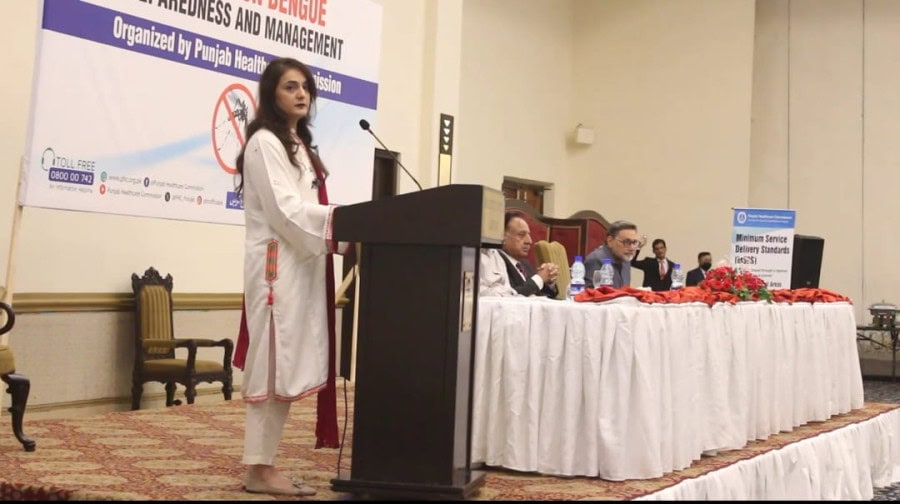LAHORE – Correct diagnosis, timely treatment and continuous follow-up care are crucial in preventing fatalities and complications of dengue patients, while awareness about the disease, like the one carried out by the Punjab Healthcare Commission (PHC), can go a long way in combating dengue.
Speakers observed this at the ‘Dengue Preparedness and Management’ seminar organised by the PHC. The event, chaired by Chief Executive Officer PHC Dr Muhammad Saqib Aziz, was attended by a large number of health professionals, dengue-treating medics from both public and private healthcare establishments, representatives of the health departments and district administration.
In his welcome note, Dr Saqib Aziz emphasised the significance of quality treatment and awareness regarding dengue. He urged stakeholders, health professionals, and district administrations to engage in awareness campaigns and preventive measures, highlighting dengue as a complex challenge requiring a multifaceted approach.
He noted the increasing dengue cases in Punjab and the impact of climate change on its spread, while the seminar was to sensitise the healthcare service providers for enhancing their preparedness. He stressed the role of family physicians as the first line of defence and called for better coordination among health entities.
He also encouraged private healthcare to report dengue cases promptly and underscored the importance of public awareness and ongoing education.
Chairperson of the Dengue Expert Advisory Group (DEAG) Prof Muhammad Imran Hasan Khan highlighted the role of the Group in combating the dengue epidemic through capacity-building of the healthcare service providers across Punjab. He informed the participants about the situation of dengue in the province, and steps taken to address the issue related to the disease.
He emphasised that the right diagnosis and management as the keys to successful treatment of the cases. He also elaborated that teamwork among healthcare service providers could be the main direction.
Head of the Medicine Department at Allama Iqbal Medical College Prof Tanvir-us-Salam, as the keynote speaker, focused on the accurate diagnosis and management of dengue. He dispelled common misconceptions about the disease and its treatment, providing clarity to healthcare professionals.
He emphasised the importance of prevention and an active role of government in eliminating dengue breeding sites by clearing water sites, arranging public awareness seminars, social and electronic media campaigns, economising rates for dengue diagnostic lab tests and the role of healthcare service providers in saving lives of the dengue patients. He said that dengue was a worldwide issue and needed effective strategies to overcome the threat and prevent the masses from its life-threatening effects.
He said the disease was prevalent worldwide, affecting people in millions annually, while the highest cases 3.5 million were in Brazil. He was of the opinion that people would have to live with it and only by effective preventive measures, its spread could be controlled. He also emphasised the right use of mosquito repellents and mostly covering the exposed body parts as an effective preventive strategy.









